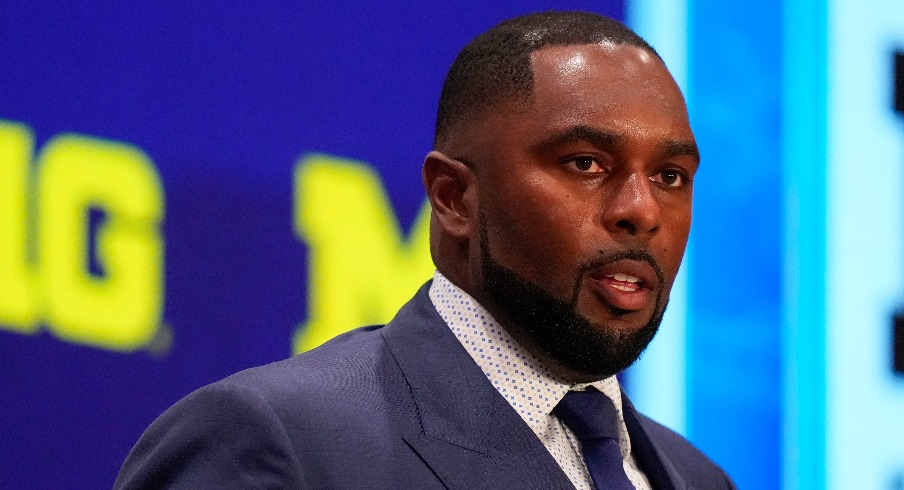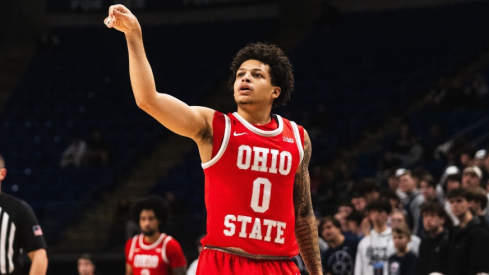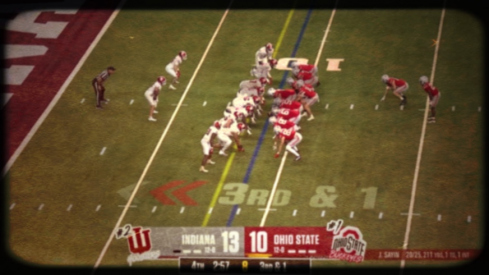"Overwhelming evidence" and "insufficient evidence" were both terms that somehow found use by the NCAA on Friday.
After handing down its fine and one-game coach suspension to Michigan despite "overwhelming evidence" of an impermissible scouting scheme, the NCAA held a press conference with Kay Norton, chief hearing officer for its committee on infractions, and Norman Bay, chief hearing officer for the investigative panel.
Bay said that a vacation of wins wasn't on the table because there weren't any issues of ineligible players, but Norton then added there was "insufficient evidence" that Michigan's actions impacted the outcomes of games. That's despite holding possession of spreadsheets, charts and a phone call that showed Stalions orchestrated a massive impermissible scheme to steal opposing signals.
While criticism has come that the NCAA's penalties aren't harsh enough for a program it says broke the rules and actively worked to obstruct its investigation, Bay insisted that the punishments are "very significant."
- In his opening statement, Bay reiterated that evidence showed "an elaborate, impermissible scouting scheme" occurred in the Michigan football program in 2021, 2022 and 2023 under coach Jim Harbaugh's oversight.
- Bay added that there was an "elaborate effort" to obstruct the investigation into the impermissible scouting.
- Bay laid out much of the known details of the Connor Stalions scheme evidenced in the NCAA's investigation. Stalions distributed tickets to staffers and other associates and they filmed opposing sidelines during games so Stalions could decipher the signals. The committee found 56 instances of impermissible in-person scouting.
- "You don't put together an elaborate network called the 'KGB' ... spend tens of thousands of dollars ... unless you intend to gain a significant competitive advantage," Bay said.
- Bay also reiterated Harbaugh's refusal to cooperate, saying he "violated the principles of head coach responsibility." Harbaugh refused to submit to an interview with the NCAA and refused to hand over key documents and evidence.
- On the evidence that funding for Stalions' scheme may have come from an external source: "There was evidence in a record suggesting Stalions told an intern or others he received funding from others. ... In my view, it raised a question about Stalions' credibility, but we do not know where the money came from."
- On why the committee didn't vacate wins: "Vacation of records is only in play when there's ineligible competition. That was not a factor in this case."
- Norton added that the NCAA found "insufficient evidence" that the scheme had a significant impact on the results of games.
- Bay said that "the efforts to obstruct and the failure to cooperate aggregated the infractions."
- Bay pointed to Michigan's quick suspension of Stalions after the NCAA reported its findings to the Big Ten as reason why there's "no evidence" that Stalions had any impact on games after he was forced to leave the program. "I think the penalty here was very significant. I think it was meaningful. And I think it sends a message to the membership that rules matter."
- Bay and Norton declined to speculate on whether Michigan would have received a postseason ban if Harbaugh were still the head coach.
- Bay on the third-party information that led the committee to its investigation: "I would say that the decision itself says about all we know about the confidential source and the report that was provided to enforcement. Under NCAA bylaws, confidential sources are permitted." Bay added that the bylaws also stipulate the committee cannot be told the identity of a confidential source.
- "We did not find any violations that weren't corroborated by more than one source. ... We did not rely upon simply a package of information ... that were then corroborated by the NCAA process and established," Norton said.
- On concern over whether this sets a precedent that not cooperating with the NCAA will lead to lighter punishments: "I would hope that the takeaway is not that you can fail to cooperate and get away with it. ... The consequences here were serious, so I would be sad here if people read this decision in a contrary fashion."


